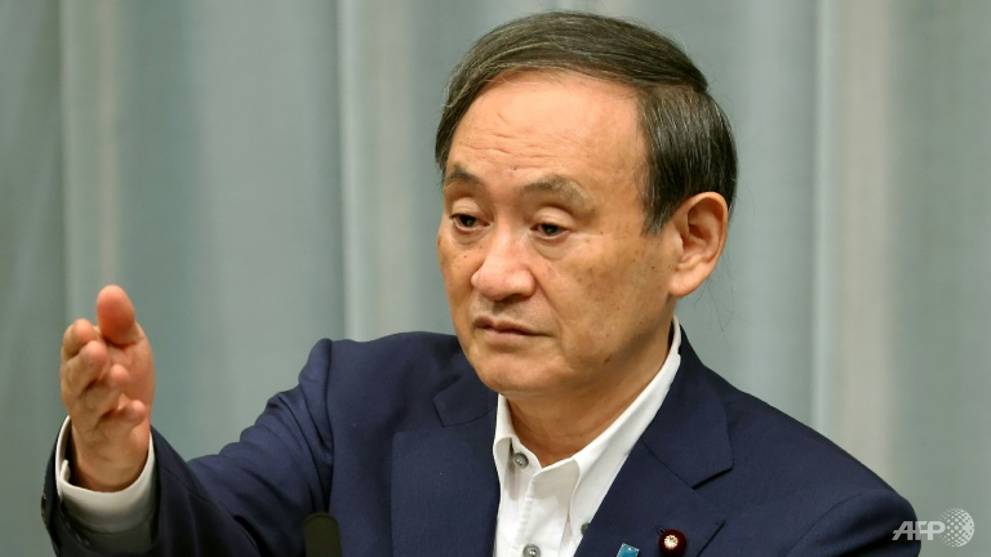
TOKYO: Japan's Chief Cabinet Secretary Yoshihide Suga officially declared on Wednesday (Sep 2) he would run for leadership of the ruling Liberal Democratic Party (LDP), a race he is widely tipped to win to become the next prime minister.
Speaking to a briefing, Suga said he wanted to run to avoid a political vacuum at a time when the world's third-largest economy grapples with the impact of the pandemic.
"I decided to run in the LDP leadership race after some deep thought on what I can do as a politician and a member of Abe's administration," Suga told a briefing.
The party's leader is set to take over as prime minister given the LDP's majority in the lower house of parliament.
READ: Commentary: Japan's longest serving PM has run out of time on unfinished business
He said he would "maintain and push forward" the "Abenomics" stimulus policies pursued by Prime Minister Shinzo Abe if he were to become the next premier.
Suga added he would maintain the kind of relationship the government has had with the Bank of Japan under Abe's administration.
Abe announced his decision to resign last week, citing poor health.
His main competitors for the top job are likely to be a former defence minister, Shigeru Ishiba, and ex-foreign minister Fumio Kishida, but Suga's position looks strong.
READ: Largest faction of Japan's ruling party backs Suga in leadership race: NHK
He has secured the backing of five of the LDP's seven factions, public broadcaster NHK and others reported.
The party decided on Tuesday to hold a slimmed-down election with just members of parliament and three votes from each of the 47 prefectures - an advantage for Suga. The election will be on Sep 14.
Many party chapters will poll rank-and-file members to decide how to allocate their three votes, but experts say this is unlikely to change the momentum growing for Suga if the members of the five factions back him.
But Ishiba is by far the most popular among the public and has been on a media blitz, appearing on several television programmes over the past few days.
"During Abenomics, stocks rose, the yen was weak and wrought unprecedented profits to companies - that's something to be grateful for," Ishiba said on Fuji TV on Wednesday when asked how he would improve the lives of low-income workers and the unemployed.
"But what do we do with the dark side of that? That's the most important question in the post-Abe era," he said.
READ: Japan's next premier to find COVID-19 pandemic eroding job market gains made by 'Abenomics'
Apart from inheriting an economy in the throes of its worst downturn since World War II, Abe's successor will have to try to ensure that next year's Olympics - already delayed for a year by the novel coronavirus - go ahead as planned.
In recent months, Abe had seen his support fall to one of the lowest levels since taking power in December 2012 because of growing discontent among voters with his handling of the coronavirus and scandals among LDP members.
"There are various criticisms of the Abe administration, and we must work on each issue, listening to the voices of the people earnestly so as not to lose public trust," Suga said at one of his twice-daily news conferences as top government spokesperson.
https://news.google.com/__i/rss/rd/articles/CBMiamh0dHBzOi8vd3d3LmNoYW5uZWxuZXdzYXNpYS5jb20vbmV3cy9hc2lhL2phcGFuLXlvc2hpaGlkZS1zdWdhLXJ1bnMtZm9yLWxlYWRlcnNoaXAtcHJpbWUtbWluaXN0ZXItMTMwNzU1NzDSAQA?oc=5
2020-09-02 09:05:36Z
52781035995747
Tidak ada komentar:
Posting Komentar